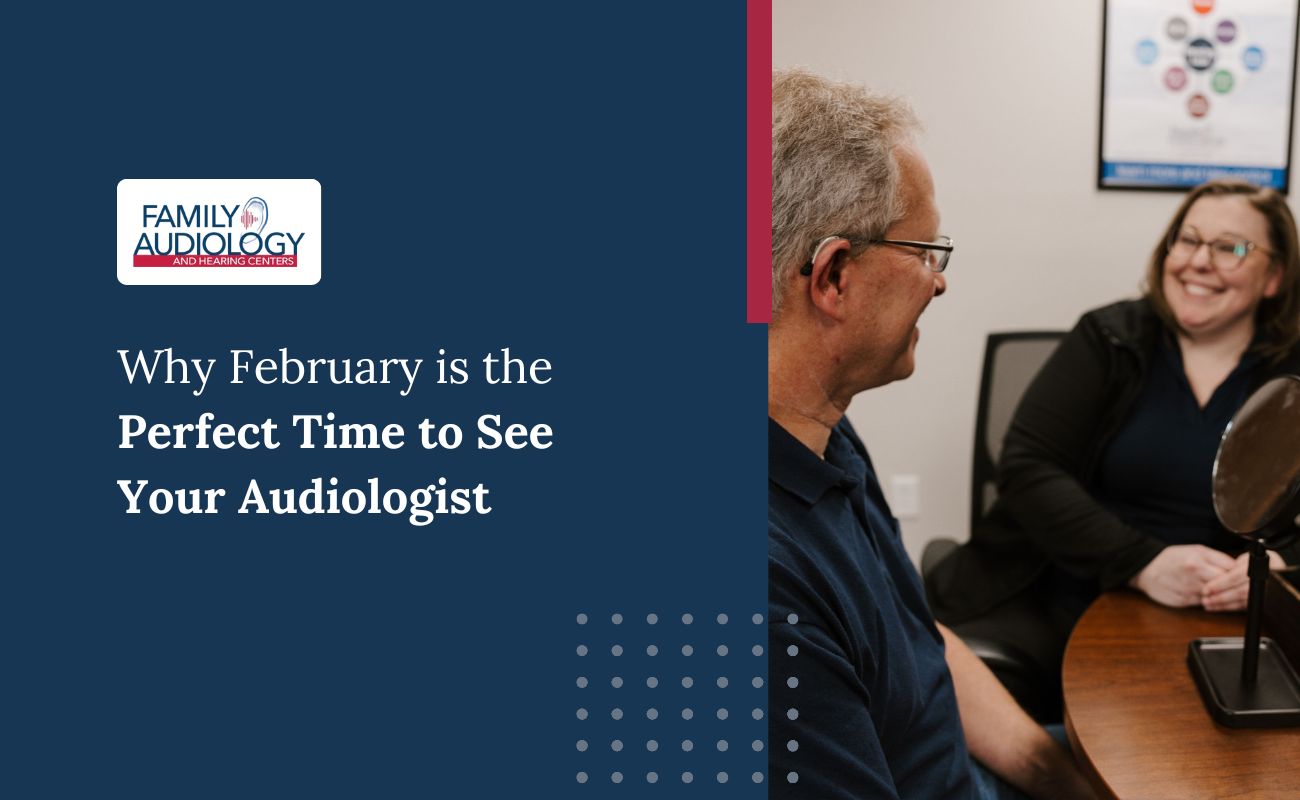The Cognitive Benefits of Well-Fitted Hearing Aids



Hearing loss affects more than your ability to understand conversations—it can significantly impact your brain function and cognitive health. Research continues to demonstrate strong connections between untreated hearing loss and cognitive decline, making the case for addressing hearing difficulties sooner rather than later. At Family Audiology and Hearing Centers, we recognize that treating hearing loss isn't just about improving sound quality; it's about protecting your brain health and maintaining cognitive vitality as you age.
Understanding the Brain-Hearing Connection
Your brain and ears work together as an integrated system. When sound enters your ear, it travels through the auditory pathway to the brain, where complex processing occurs to interpret what you're hearing. This process requires significant mental effort, particularly when hearing loss is present.
When hearing becomes challenging, your brain must work harder to fill in missing information and interpret incomplete sound signals. This increased cognitive load means your brain dedicates more resources to basic hearing tasks, leaving fewer resources available for memory, concentration, and processing information.
Consider running multiple applications on your computer at once. When one program demands excessive processing power, the entire system slows down. Your brain operates similarly—when it struggles to process sound due to hearing loss, other cognitive functions can suffer.
The Risks of Leaving Hearing Loss Unaddressed
Studies reveal concerning links between unaddressed hearing loss and various cognitive issues. People with hearing loss face a higher risk of developing dementia compared to those with normal hearing. The severity of this risk increases with the degree of hearing loss—mild hearing loss doubles dementia risk, while severe hearing loss increases the risk fivefold.
Unaddressed hearing loss contributes to several cognitive challenges:
Reduced Processing Speed: When your brain constantly struggles to interpret incomplete auditory information, it can slow down overall cognitive processing. Tasks that once felt automatic may require more time and mental effort.
Memory Difficulties: The extra cognitive resources devoted to understanding speech leave less capacity for storing and retrieving memories. Many people report increasing trouble remembering recent conversations or details from social interactions.
Mental Fatigue: Constantly straining to hear creates exhausting mental work. This listening fatigue can leave you feeling drained after social situations or meetings, even when you haven't been physically active.
Social Withdrawal: Communication challenges often lead people to avoid social situations, resulting in isolation. This reduced social engagement further accelerates cognitive decline, as social interaction plays a significant role in maintaining mental sharpness.
How Hearing Aids Protect Cognitive Function
Well-fitted hearing aids address these concerns by restoring access to sound and reducing the cognitive burden of listening. When you can hear clearly without excessive mental strain, your brain can allocate resources more efficiently across all cognitive functions.
Today's hearing aids do more than simply amplify sound. They process speech and noise differently, helping your brain distinguish important sounds from background noise. This sophisticated processing reduces the mental effort required for everyday listening situations.
The Value of Professional Fitting
The cognitive benefits of hearing aids depend heavily on proper fitting and programming. Improperly fitted devices can increase listening effort, potentially negating the cognitive advantages they're designed to provide.
We take a comprehensive approach to hearing aid fittings at our practice. After conducting thorough hearing evaluations, we select devices that match your specific hearing loss profile and lifestyle needs. The fitting process involves precise programming to make certain sounds are amplified appropriately across different frequencies.
We use advanced fitting software and techniques to optimize your hearing aid performance. This careful calibration means your brain receives clear, balanced sound input without overwhelming or under-stimulating your auditory system. The result is more natural hearing that requires less cognitive effort.
At Family Audiology and Hearing Centers, we incorporate Real Ear Measurements into our fitting process when appropriate. This verification method uses a tiny microphone placed in your ear canal to measure the actual sound levels reaching your eardrum. This objective measurement confirms your hearing aids are programmed precisely for your unique ear anatomy and hearing loss, maximizing both comfort and cognitive benefit.
Beyond Initial Fitting: Ongoing Optimization
Achieving optimal cognitive benefits from hearing aids requires ongoing care and adjustments. Your hearing needs may change over time, and your comfort with different listening situations evolves as you adapt to amplification.
We schedule regular follow-up appointments to assess your progress and make necessary adjustments. These visits allow us to fine-tune your hearing aids based on your real-world experiences, keeping them performing at their best with minimum listening effort.
Many patients report improvements in mental clarity and reduced fatigue within weeks of beginning to wear properly fitted hearing aids. These changes reflect your brain's ability to redirect cognitive resources from the exhausting work of straining to hear toward other functions that matter in your daily life.
Lifestyle Factors That Enhance Cognitive Benefits
Wearing hearing aids consistently maximizes their cognitive benefits. Your brain needs regular exposure to clear sound to maintain efficient auditory processing pathways. Wearing your devices for most of your waking hours helps preserve these neural connections and keeps your mind sharp.
Staying socially engaged amplifies the cognitive benefits of hearing aids. When you can participate comfortably in conversations, you're more likely to maintain the social connections that support cognitive health. Attending family gatherings, community events, and social activities keeps your brain active and engaged.
Combining hearing aid use with other healthy lifestyle choices creates synergistic effects for cognitive health. Regular physical activity, balanced nutrition, quality sleep, and mentally stimulating activities all support brain function and work together with hearing aids to maintain cognitive vitality.
The Time Factor: Why Early Intervention Matters
Research suggests that addressing hearing loss early provides greater cognitive benefits than waiting until hearing difficulties become severe. Early intervention helps preserve the brain's auditory processing abilities and maintains the neural pathways involved in sound interpretation.
When hearing loss remains unaddressed for extended periods, the brain's auditory cortex can reorganize, with areas once dedicated to sound processing being recruited for other functions. This reorganization can make adjusting to hearing aids more challenging and may limit the cognitive benefits they provide.
Starting hearing aid use when hearing loss is still mild or moderate allows your brain to maintain its auditory processing efficiency. This approach makes the transition to amplification smoother and provides earlier cognitive protection.
Protecting Your Brain Health Starts Here
Your cognitive health deserves the same attention as your physical health, and addressing hearing loss is a meaningful step in that direction. At Family Audiology and Hearing Centers, we provide comprehensive hearing evaluations and expert hearing aid fittings across our 17 Ohio locations. Our experienced audiologists understand the connection between hearing and cognitive health, and we're passionate about helping you maintain both.
If you've noticed changes in your hearing or cognitive function, schedule a consultation with our team. We'll conduct a thorough assessment of your hearing abilities and discuss solutions tailored to your specific needs. With the right hearing aids and professional support, you can protect your cognitive health while reconnecting with the sounds and conversations that enrich your life.
Contact us today to schedule your appointment. Your brain—and your loved ones—will appreciate the difference better hearing makes.
Discover the Latest Articles
Stay informed with our informative articles.

Why February is the Perfect Time to See Your Audiologist
.jpg)
What Your Audiologist Checks During a Comprehensive Hearing Evaluation

How AI Technology Is Transforming Hearing Aid Performance
Contact your local Hearing Aid Specialists
At Family Audiology and Hearing Centers, we strive to be there for all your family’s hearing needs. Because of this, we have 17 convenient locations in Ohio and Wisconsin for you to visit. See which location is best for you and schedule an appointment today.


